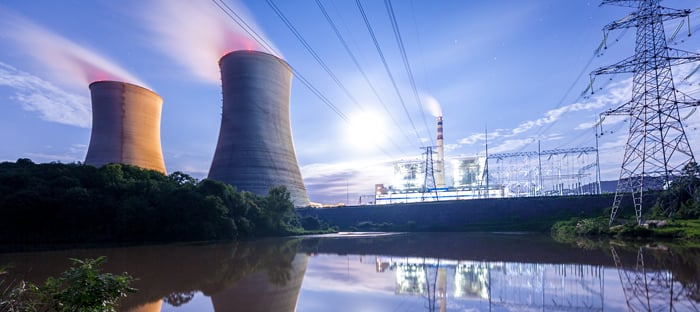Power your home
Enjoy price security with Safe Harbor fixed price energy plans

Power your business

Loading component...
Loading component...
Energy Resources

Wondering whether you pay more or less for energy than the average American? It’s a good question to ask. If the answer is yes, your bill is higher, it could signal structural or mechanical energy inefficiencies in your home. Or it could simply mean your energy rate is higher than rates offered by other suppliers.
It’s also important to know how your bill stacks up so that you can better manage your home budget. An above average bill is a good indicator that older appliances should be replaced by efficiency appliances or that heating and cooling systems may require maintenance or upgrading.
Before we share with you the national average, make a promise to read the entire article before you act. If your bill is above the average, that may not mean you’re paying too much. And if your bill is below the average, you may still be overpaying for electricity or natural gas.
Don’t worry. We’ll tell you why.
On average, Americans pay about $115 a month in residential electricity, according to the U.S. Energy Information Association (EIA), with the average U.S. resident consuming 877 kilowatt hours (kWh) per month. But that average differs from state to state. Energy bills in Missouri, for example, fall below the national average while Hawaii residents' bills are much higher. In some cases, average electricity bills can differ from city to city in a state. Canton, Ohio, at $102 on average per month, is $5 less than Cleveland, Ohio, at $107 a month.
Location isn’t the only factor that decides what your electric bill total will read. Rates charged by power plants, fuel, demand and federal and state regulations all play a part. So do utility costs, like transition charges and customer charges.
Your home plays a role, too. A two-bedroom ranch typically will consume less energy than a two-story, four-bedroom home. Increasing the number of people living in a home, like a kid coming home from college, can affect your bill, too. More people under your roof means more loads of laundry, dishwashing, and electronics usage, all requiring more power. Inefficient appliances can also raise average bills.
Americans pay an average monthly gas bill of around $63, though, like electricity bills, and for many of the same reasons, average bills will be more – or less – in some states than others. That translates to an average household energy consumption of 71.2 million British Thermal Units (BTUs) of gas, as measured in 2019. Hawaii pays the highest average for gas at $232 a month, and Utah pays the least at $52 a month.
Beyond variable rates, location and weather, another factor that can affect how much you pay for natural gas is the age of your home. It often takes more energy to heat older homes because they often lack adequate insulation. Same with a home’s size.
Inefficient appliances also affect the average cost of natural gas, similar to the way electricity bills can fluctuate based on appliance age and performance.
A variable natural gas rate will also impact what you owe each month. Natural gas procurement fluctuates in much the way oil prices fluctuate. The cost your supplier charges each month for gas will reflect that ebb and flow.
Aren’t sure what the averages are for where you live? Check with your utility. They may be able to provide you with that information. If you discover your electric or gas bill is above the average, there are things you can do to help lower your gas and electric bill.
To begin, conducting a basic energy efficiency audit of your home and HVAC system can give you a better sense of your home’s strengths and weaknesses, which can help save you money. Once you complete your audit, consider these other tips:
There are a few ways you can calculate your approximate bill. A handful of tech companies have created devices that connect to your home’s electrical system, recognize each appliance’s electrical signature and calculate an approximation from there. You can then view that data via app or online, but the service comes at a cost.
You could also invest in smart plugs that feature wattage monitoring which you can use to track energy usage. A relatively inexpensive electricity usage monitor can provide you with a snapshot of any appliance’s energy usage. Use that information to calculate your overall energy usage.
For example, a 60-watt lightbulb that is on 10 hours a day uses 600 watt-hours per day (60 x 10 = 600). Divide 600 by 1,000 to convert 600 watt-hours into .6 kWh (600/1,000 = .6). If your electricity rate is 10 cents per kWh, you know that lightbulb costs 6 cents per day. Now do that with all of your electric devices and appliances.
Yep, that’s a lot.
Another way to get a better sense of what your electric or gas bill will be is to choose a fixed-rate energy plan. A simple fixed-rate plan can help you avoid seasonal utility bill hikes and make monthly budgeting more predictable.
Discover the difference and find out how best to choose an energy plan.
There may be times when your energy bill is above average and that’s okay. Maybe you enjoy displaying holiday lights more than your neighbors and your January bill reflects that added cost. Or maybe you hosted friends and family for an extended period and their added activities boosted your energy budget.
Many people choose to invest in clean energy fixed rate plans, which sometimes cost a little bit more than a standard energy plan. The investment is worth it for those who want to partner with an energy supplier that generates safe, reliable, carbon-free nuclear energy to help ensure a low-carbon future.
Whether your gas or electric bill is above or below average, if you live in an Energy Choice state, it’s always worth taking a moment to compare rates and choose the electricity plan that works best for you and your family.
Enter your zipcode to find 100% Green plans in your area.